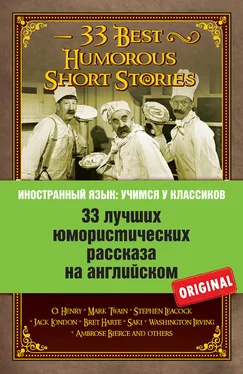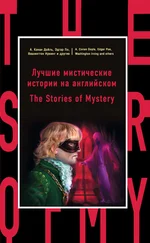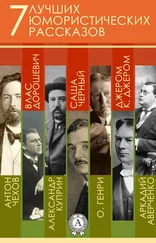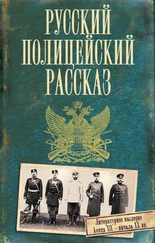With that she hauled from her bosom the daguerreotype of her father and pressed it to her lips.
The earl started as if shot. ‘That name!’ he cried, ‘that face! that photograph! stop!’
There! There is no need to finish; my readers have long since divined it. Gertrude was the heiress.
The lovers fell into one another’s arms. The Earl’s proud face relaxed. ‘God bless you,’ he said. The Countess and the guests came pouring out upon the lawn. The breaking day illuminated a scene of gay congratulations.
Gertrude and Ronald were wed. Their happiness was complete. Need we say more? Yes, only this. The Earl was killed in the hunting-field a few days after. The Countess was struck by lightning. The two children fell down a well. Thus the happiness of Gertrude and Ronald was complete.
A Hero in Homespun: or, The Life Struggle of Hezekiah Hayloft
‘Can you give me a job?’
The foreman of the bricklayers looked down from the scaffold to the speaker below. Something in the lad’s upturned face appealed to the man. He threw a brick at him.
It was Hezekiah Hayloft. He was all in homespun. He carried a carpet-bag in each hand. He had come to New York, the cruel city, looking for work.
Hezekiah moved on. Presently he stopped in front of a policeman.
‘Sir,’ he said, ‘can you tell me the way to —’
The policeman struck him savagely across the side of the head.
‘I’ll learn you,’ he said, ‘to ask damn fool questions —’
Again Hezekiah moved on. In a few moments he met a man whose tall black hat, black waistcoat and white tie proclaimed him a clergyman.
‘Good sir,’ said Hezekiah, ‘can you tell me —’
The clergyman pounced upon him with a growl of a hyena, and bit a piece out of his ear. Yes, he did, reader. Just imagine a clergyman biting a boy in open daylight! Yet that happens in New York every minute.
Such is the great cruel city, and imagine looking for work in it. You and I who spend our time in trying to avoid work can hardly realise what it must mean. Think how it must feel to be alone in New York, without a friend or a relation at hand, with no one to know or care what you do. It must be great!
For a few moments Hezekiah stood irresolute. He looked about him. He looked up at the top of the Metropolitan Tower. He saw no work there. He looked across at the skyscrapers on Madison Square, but his eye detected no work in any of them. He stood on his head and looked up at the flat-iron building. Still no work in sight.
All that day and the next Hezekiah looked for work.
A Wall Street firm had advertised for a stenographer.
‘Can you write shorthand?’ they said.
‘No,’ said the boy in homespun, ‘but I can try.’
They threw him down the elevator.
Hezekiah was not discouraged. That day he applied for fourteen jobs.
The Waldorf Astoria was in need of a chef. Hezekiah applied for the place.
‘Can you cook?’ they said.
‘No,’ said Hezekiah, ‘but oh, sir, give me a trial, give me an egg and let me try – I will try so hard.’ Great tears rolled down the boy’s face.
They rolled him out into the corridor.
Next he applied for a job as a telegrapher. His mere ignorance of telegraphy was made the ground of refusal.
At nightfall Hezekiah Hayloft grew hungry. He entered again the portico of the Waldorf Astoria. Within it stood a tall man in uniform.
‘Boss,’ said the boy hero, ‘will you trust me for the price of a square meal?’
They set the dog on him.
Such, reader, is the hardness and bitterness of the Great City.
For fourteen weeks Hezekiah Hayloft looked for work. Once or twice he obtained temporary employment only to lose it again.
For a few days he was made accountant in a trust company. He was discharged because he would not tell a lie. For about a week he held a position as cashier in a bank. They discharged the lad because he refused to forge a cheque. For three days he held a conductorship on a Broadway surface car. He was dismissed from this business for refusing to steal a nickel.
Such, reader, is the horrid degradation of business life in New York.
Meantime the days passed and still Hayloft found no work. His stock of money was exhausted. He had not had any money anyway. For food he ate grass in Central Park and drank the water from the Cruelty to Animals horse-trough.
Gradually a change came over the lad; his face grew hard and stern, the great city was setting its mark upon him.
One night Hezekiah stood upon the sidewalk. It was late, long after ten o’clock. Only a few chance pedestrians passed.
‘By Heaven!’ said Hezekiah, shaking his fist at the lights of the cruel city, ‘I have exhausted fair means, I will try foul. I will beg. No Hayloft has been a beggar yet,’ he added with a bitter laugh, ‘but I will begin.’
A well-dressed man passed along.
Hezekiah seized him by the throat.
‘What do you want?’ cried the man in sudden terror. ‘Don’t ask me for work. I tell you I have no work to give.’
‘I don’t want work,’ said Hezekiah grimly. ‘I am a beggar.’
‘Oh! is that all,’ said the man, relieved. ‘Here, take this ten dollars and go and buy a drink with it.’
Money! money! and with it a new sense of power that rushed like an intoxicant to Hezekiah’s brain.
‘Drink,’ he muttered hoarsely, ‘yes, drink.’
The lights of a soda-water fountain struck his eye.
‘Give me an egg phosphate,’ he said as he dashed his money on the counter. He drank phosphate after phosphate till his brain reeled. Mad with the liquor, he staggered to and fro in the shop, weighed himself recklessly on the slot machine three or four times, tore out chewing gum and matches from the automatic nickel boxes, and finally staggered on to the street, reeling from the effects of thirteen phosphates and a sarsaparilla soda.
‘Crime,’ he hissed. ‘Crime, crime, that’s what I want.’
He noticed that the passers-by made way for him now with respect. On the corner of the street a policeman was standing.
Hezekiah picked up a cobblestone, threw it, and struck the man full on the ear.
The policeman smiled at him roguishly, and then gently wagged his finger in reproof. It was the same policeman who had struck him fourteen weeks before for asking the way.
Hezekiah moved on, still full of his new idea of crime. Down the street was a novelty shop, the window decked with New Year’s gifts.
‘Sell me a revolver,’ he said.
‘Yes, sir,’ said the salesman. ‘Would you like something for evening wear, or a plain kind for home use. Here is a very good family revolver, or would you like a roof garden size?’
Hezekiah selected a revolver and went out.
‘Now, then,’ he muttered, ‘I will burglarise a house and get money.’
Walking across to Fifth Avenue he selected one of the finest residences and rang the bell.
A man in livery appeared in the brightly lighted hall.
‘Where is your master?’ Hezekiah asked, showing his revolver.
‘He is upstairs, sir, counting his money,’ the man answered, ‘but he dislikes being disturbed.’
‘Show me to him,’ said Hezekiah, ‘I wish to shoot him and take his money.’
‘Very good, sir,’ said the man deferentially. ‘You will find him on the first floor.’
Hezekiah turned and shot the footman twice through the livery and went upstairs.
In an upper room was a man sitting at a desk under a reading-lamp. In front of him was a pile of gold.
‘What are you doing?’ said Hezekiah.
‘I am counting my money,’ said the man.
‘What are you?’ asked Hezekiah sternly.
‘I am a philanthropist,’ said the man. ‘I give my money to deserving objects. I establish medals for heroes. I give prizes for ship captains who jump into the sea, and for firemen who throw people from the windows of upper stories at the risk of their own; I send American missionaries to China, Chinese missionaries to India, and Indian missionaries to Chicago. I set aside money to keep college professors from starving to death when they deserve it.’
Читать дальше
Конец ознакомительного отрывка
Купить книгу












